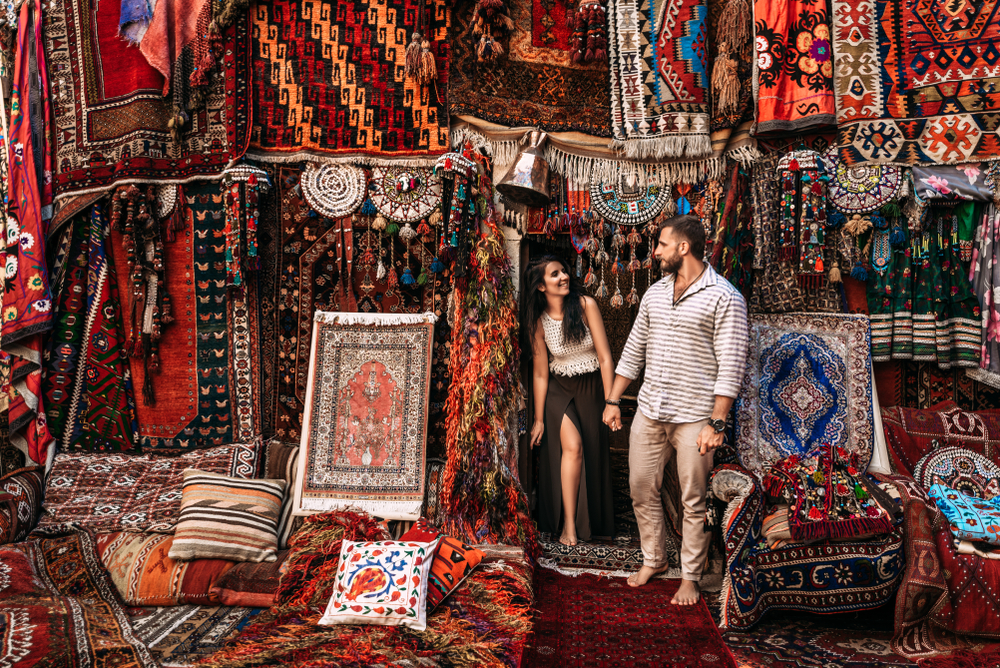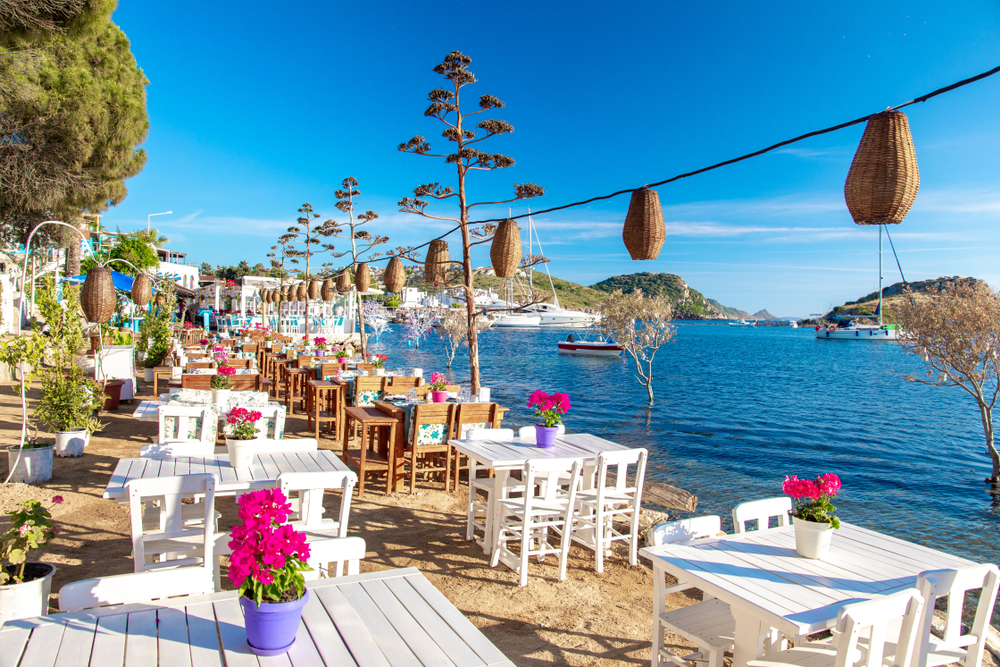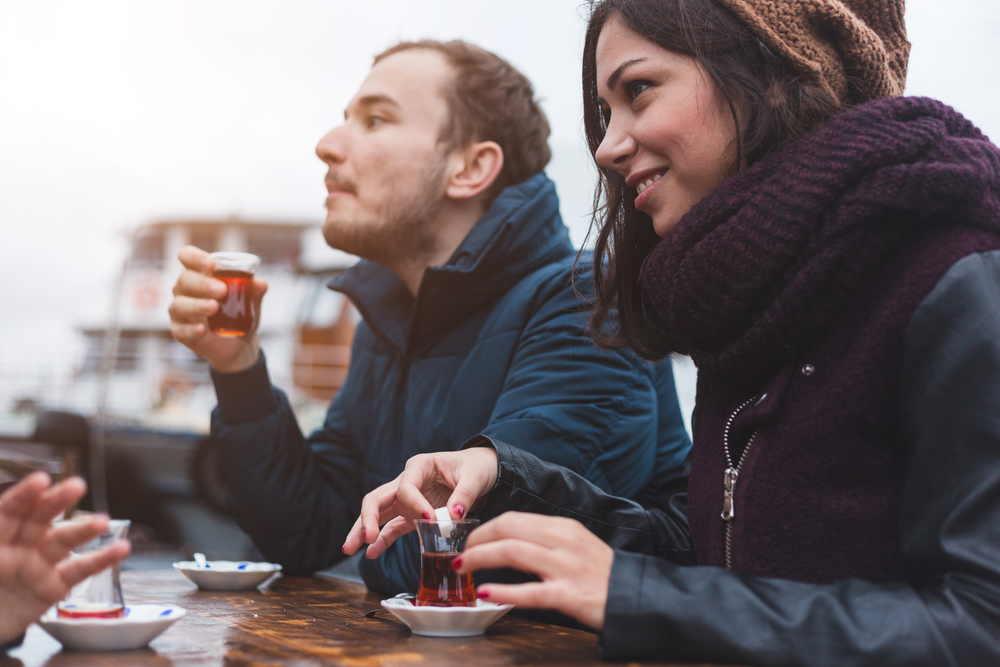The stunning, culturally rich nation of Turkey occupies a landmass roughly the size of Texas along the Mediterranean and Black Sea. Istanbul, the largest city in Turkey and a key seaport, holds the distinction of straddling the borders of Europe and Asia on the Bosphorus Strait. This area of the world is teeming with UNESCO Heritage Sites, with the Turks creating a lasting cultural legacy that leaves plenty for visitors to see and do.
However, those preparing to visit Turkey from Europe or other western countries may have some questions about how they can best enjoy the country while respecting local customs. We’ll explore some tips that can help those new to Turkey experience its full potential. Discover what you should know before you enter Turkey for the trip of a lifetime.
The Importance of Etiquette in Turkey

Understanding local etiquette and customs can go a long way in helping you appreciate and enjoy your visit to any country. Each country has its own unique traditions and social norms, influencing how both locals and visitors must behave. Even though you might not intend to, failing to understand local customs can result in offending your cultural hosts and could potentially cause uncomfortable situations to arise.
Turkey has a deep Muslim majority, leading many visitors to feel uncertain about certain cultural aspects, such as wearing headscarves. Understanding the local etiquette can help you be on your best behavior in different situations and enjoy your time and experience with a better understanding of the culture.
We’ll explore some of the key Turkey travel tips you’ll want to familiarize yourself with while visiting the country to avoid appearing unintentionally rude or attracting unwanted attention.
Is Tipping Customary in Turkey?

As you move around Turkey, it’s important to know when and how much to tip. Generally speaking, many people in the service industry will expect a tip after they help you in Turkey. Still, those tips might be smaller than you may have experienced in American culture.
Tips should generally be given in cash rather than included with the rest of the payment on a credit card. In most situations where someone specifically serves you, you should expect to tip. For example, if you travel via public transportation on a bus, and a porter helps you with your bag, you should tip a bit per bag. Companies will post signs at the front of the bus or anywhere else you might encounter a porter.
However, if you don’t see it, estimate about two to three Turkish lira per bag. Waiters expect tips ranging from 5% to 15%.
If you’re with a group and participate in a guided tour, tipping about 20 to 30 Turkish lira per day is generally considered a generous tip.
Turkish Dining Etiquette

When dining in a Turkish restaurant, you’ll have access to an incredible amount of delicious food. However, it’s important to note a few key differences that you may experience when entering a Turkish restaurant.
- Order à la carte. You won’t necessarily need to order all of your food right at the beginning of the meal the way you would back home. Instead, you order each dish as you want it. Turkish people also tend to take their time with formal meals, potentially stopping to socialize or even smoking between dishes.
- Make eye contact. When you want to get your server’s attention, such as when it comes time to pay your bill, you’ll want to do so by making eye contact. Attempting to call their name or wave them over will make you appear rude.
- Eat lots of bread. As you enjoy your meal, prepare to have a lot of bread to go along with it. The Turkish people greatly appreciate their bread and will eat it regularly with different dishes. Fortunately, it’s delicious!
Turkey Public Transportation Etiquette

If you want to see more of Turkey, there are several public transportation options for navigating the country. Buses connect the different villages and cities, while boats can take you along the waterways, and private taxis and mini-buses can escort you where you want to go.
Tourists need to research travel options and know what companies to use before buying tickets. Warning: some minibus and taxi drivers run scams and try to convince tourists they can’t take public transportation.
When you reserve seats on a bus, you’ll reserve the actual seat. It’s important to note that unmarried women and men are expected not to sit together, although Turks would not expect foreigners to observe that practice. Alcohol is also expressly forbidden on public transportation, so don’t consume any while riding the bus.
Turkey Dress Code: How to Dress in Turkey as a Tourist

As you prepare for your trip to Turkey, it’s a good idea to carefully consider the type of clothing you’ll bring with you. Turkey generally has cold winters, cooler falls and springs — particularly at night — and hot summers. However, temperature ranges will vary depending on where you go in the country. So, it’s a good idea to check the forecast before your trip to get a sense of the temperature during that particular time of the year.
- Bring comfortable footwear. For exploring the beauty of Turkish cities, wear comfortable shoes that can accommodate all the walking you will be doing. Turkish cities offer so many experiences, from history to culture and local bazaars, that you don’t want to be sidelined by uncomfortable shoes.
- Dress conservatively when visiting religious sites. If you plan on visiting mosques or other religious sites, make sure you have conservative outfits available to you. For men, conservative dress means no shorts. Women should wear longer skirts below the knees and a sleeved top: meaning no tank tops or sleeveless outfits. Women should also have a headscarf to wear when they go inside.
- Look up restaurant dress codes. When you head out to eat, your attire will vary depending on the type of establishment. Formal restaurants may call for a jacket and more formal attire, while casual eateries will be fine with neat, comfortable clothing. However, Turkey generally leans more conservative, so make sure your dress matches the occasion.
Social Etiquette and Customs in Turkey

Visitors to Turkey will find that most residents are generous hosts. If invited to a Turkish home for a meal, pay attention to the seating arrangements. The guest of honor, or those considered the most significant, sit in places of honor, typically near the host. Guests of honor are also served first.
Social Etiquette and Customs to Keep in Mind
When interacting with Turkish people throughout your stay, you may observe some differences in social interactions, including how men and women interact, compared to what you might be used to elsewhere.
As you socialize with Turkish people, even if they speak English, it’s always appreciated when you learn a few Turkish words appropriate to the occasion. For example, teşekkür ederim means “thank you.” As you converse with your hosts, it’s also a good idea to have some general knowledge of Turkey, particularly the Ottoman Empire and Turkey’s first modern president, Mustafa Kemal Atatürk.
- Depending on the household, you may find you spend most of your time socializing with the men of the household. The women spend most of the time preparing the food and cleaning up after the meal.
- Men will often escort women to their seats or the restroom during a formal meal.
- Turkish people can also be a bit more formal concerning age. If an older person enters the home, expect to stand up to greet them, and the host should offer a comfortable seating option — even if that means someone else gives up their seat. The traditional greeting for the elderly also includes kissing their hands, so don’t be surprised to see this from your local friends. Just follow their example!
- When saying goodbye, men who are friendly with each other can shake hands. A hug and a kiss on the cheek of a close friend or family member of the same sex is an appropriate greeting for men and women. However, women don’t generally shake hands.
- As you speak with people, you may also find that they use a side-to-side shake of the head to indicate more of a lack of understanding than denial. The gesture can be confusing if you assume someone shaking their head means “no.”
- When you sit down for a meal, don’t fill your cup. That is the job of your neighbor. However, this also means that as you eat, you need to keep an eye on your neighbor’s cups to make sure they don’t run dry.
- Similarly, when socializing with Turkish people, remember that many Turks practice Islam. Although some have no problem drinking alcohol, others will not. It’s best not to assume either way, but instead, always ask before presenting alcohol as a gift or otherwise bringing it to a meal.
- When you speak with someone, make sure that you also don’t have gum or something similar in your mouth as the locals consider it rude.
- Keep in mind when visiting Turkey that people will serve tea and Turkish coffee frequently when socializing or eating. They won’t generally add milk to your tea but will sweeten it with sugar.
- Finally, whenever possible, gesture or offer something with your right hand, or both hands if needed — but not solely with your left.
Understand Turkish Cultural Nuances

One of the first things you may notice is the tendency of Turkish people to refuse something the first time it’s offered to them, and then to keep refusing until they finally relent. This back and forth is expected and allows both sides to show their manners. However, for those new to the culture, it’s important to know how to navigate this arrangement.
To begin, don’t accept something the first time. Wait for the person offering you the item to ask again. If you offer something to someone, and they refuse the item, you should ask again. However, on the flip side, if you don’t want something that someone offers you, you need to know how to demonstrate that. Speaking more emphatically — while not being rude — and using hand positions, such as a hand over the heart, can help make your intentions clearer.
Cultural Nuances to Keep in Mind
There are a few cultural nuances you’ll want to be aware of before interacting with Turkish locals.
Where to Stay in Turkey

Those who enjoy learning about history, exploring archeology, and admiring architecture will find plenty to appreciate in the ancient city of Istanbul — formally known as Constantinople — the capital city of Ankara, and the cities of Izmir, Bodrum, Marmaris, and Antalya. With attractions like the Blue Mosque or the ruins of Ephesus, the country has plenty to offer. That doesn’t even touch on the gorgeous Mediterranean coasts or the majestic Taurus Mountains that lovers of the great outdoors are sure to appreciate.
If you decide to travel to Turkey, you’ll find that Turkish culture offers something for everyone. Those who enjoy trying interesting, delicious cuisine will have access to everything from mouth-watering kebabs to corba — a type of Turkish soup. For dessert, you can top it off with some delightful baklava.
Discover Turkey
As you prepare for an incredible trip to Turkey, nothing will make your adventure more complete than having access to a comfortable and perfectly situated vacation rental. One search on VacationRenter allows you to filter, compare, and sort all the available properties from a number of leading rental sites anywhere in the world. Give it a try below!